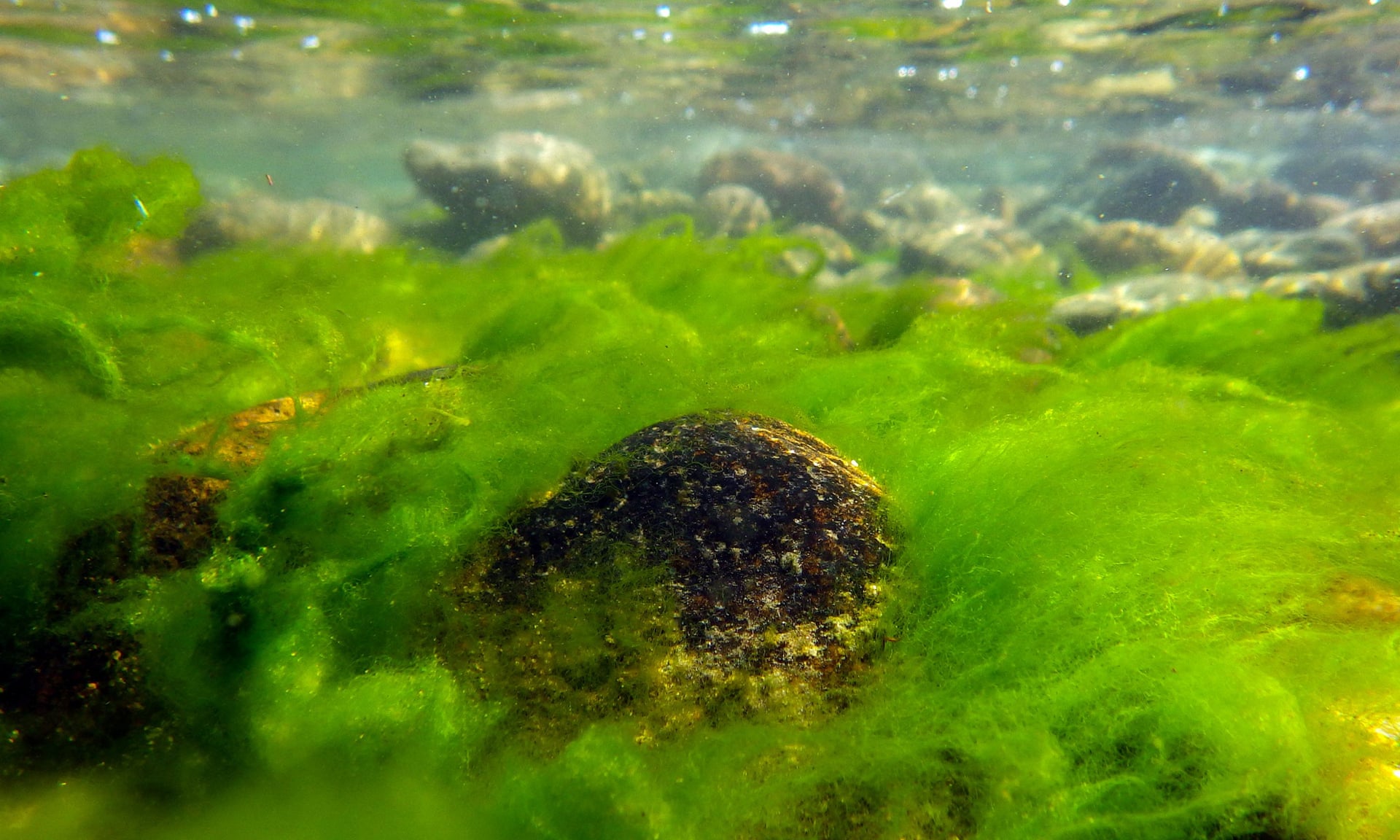 |
| Spirogya algae |
Experts have recently indicated that Lake Baikal is experiencing a dangerous environmental crisis. In the past several years, the "blue eye of Siberia" has been damaged by a series of destructive phenomena, some of which is unknown to scientists. These include the decrease in the population of the omul fish, a swift growth of Spirogyra algae, and death of endemic species of sponges across the lake's area. Despite the government's recent ban on commercial fishing of omul, local fishery biologist Anatoly Mamontov pointed out that the decrease in its population is due to unlimited fish poaching with more pressure coming from the climate resulting in a drought thus killing the fish. The threat of Spirogyra algae has affected Lake Baikal in which a mass growth of the algae covered the pristine sandy beaches. Since the algae is unnatural to the lake, some scientists say that the lake cannot absorb human pollution without consequence. According to Oleg Timoshkin, a biologist from the Russian Academy of Sciences' Limnological Institute in Irkutsk, the reason for this algal outbreak is wastewater runoff from towns without adequate sewage treatment specifically of phosphate-containing detergents. In addition, the algae is pushing out oxygen-loving mollusks and crustaceans. Furthermore, the pollution is also contributing to the death of several endemic sponge species in the lake.
 |
| Lake Baikal |
Lake Baikal is well-known throughout Russia and the world as a World Heritage Site by the UNESCO. Holding one-fifth of the world's unfrozen freshwater, it is a natural wonder of "exceptional value of evolutionary science" and home to over 3,600 species of endemic plants and animals. Among the animals unique to the lake is the Baikal seal, the world's only freshwater seal. The lake is also a major tourist destination for both local and international tourists who come each year for hiking, camping, and enjoying the scenery. However, in recent times, this lake has become tremendously affected by pollution, poaching, and spread of putrid algae. In 2012, a cleanup program was initiated in which the government has been putting 26 billion rubles to fund treatment facilities. However, local experts say that much of the money gets wasted. For example, in the town of Babushkin near Lake Baikal, millions of dollars were spent on a new treatment plant but the water-purifying bacteria failed to work in the winter. It turns out that funding for science has grown thin when studying the lake is most crucial. Therefore, it is vital to take necessary action to combat these threats affecting Lake Baikal's biodiversity and improvising the nearby towns by building treatment facilities. Otherwise, the lake would lose its status as a World Heritage Site and a tourist destination.
View article here
No comments:
Post a Comment